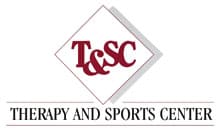What is Neurological Therapy?
Neurological injuries and conditions can be devastating disorders and therefore require very specific forms of treatment compared to other injuries. This includes the physical therapy necessary after a neurologic injury or surgery.
Neurological therapy is different in that it addresses the needs unique to those who have either suffered an injury or have been diagnosed with either acute or chronic conditions that affect the brain, spinal cord, and nerves. The goal of Neuro therapy is to help the patient achieve a healthy brain and improve the quality of life in the patients, as neurologic diseases can significantly impact one's ability to perform normal daily activities.
What Types of Injuries or Disorders Does Neurologic Therapy Help?
There is a wide range of conditions, both acute and chronic, for which neurological therapy is beneficial. Examples of chronic diseases that can benefit from this type of therapy would include disorders of the central nervous system such as Multiple Sclerosis, Parkinson's, cerebral palsy and even migraines.
Acute injuries that likely require specialized therapy during recovery would include acute traumatic brain injuries and spinal cord injuries. Many forms of neurological surgery also require extensive therapy, for example, spine surgery on a herniated disc or surgery to remove a brain tumor.
Neurological therapy focuses on strength, flexibility, balance, and pain relief in a way that is suited to each individual's specific needs.
How is Neurological Therapy Different from Other Therapies and What Does it Involve?
In comparison to other types of injuries, neurologic injuries and disorders often affect a patient's entire body. Many of these patients suffer from severe weakness as a result of a lack of activities and muscle use.
Neurologic therapy can help patients to strengthen themselves back to a functional state, starting with very gentle exercises, such as simply contracting a muscle or moving against gravity, and progressing to more advanced ones using resistance bands or weights.
Spasticity, or chronic muscle spasms, is another common problem amongst neurologic patients. This can be corrected with neurologic therapy through stretching activities and other modalities. Some neurologic patients have to relearn very basic movements such as walking and feeding themselves.
In order to obtain the optimal outcome, patients suffering from neurological problems need a therapist who understands not only the disease process or surgery but also the unique set of needs these patients require in their rehabilitation.
We are pleased to offer Neurological therapy at all of our locations. Call us today to schedule an appointment!
Sports Therapy Locations and Services
Luckily, our offices have a wide range of certified specialists, so it is easy for you to find the best therapist for your particular needs. To learn more about our highly-qualified staff of sports medicine and physical therapists, or to schedule an appointment, contact us today!
We have four locations you can choose from:
